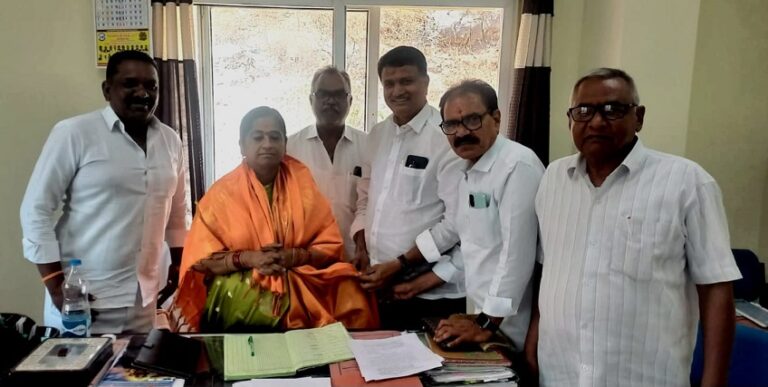
HYDERABAD, JUNE 20, 2025: More than 3,000 employees belonging to nine District Cooperative Central Banks (DCCBs) in the Telangana state are anxiously waiting for wage revision (PRC), which has been pending since November 1, 2022.
It may be recalled that the DCCBs of the Telangana state have emerged as a role model in the cooperative sector banking by undertaking diversified business activities and strengthening PACS by converting them into Multi-Service Centres (MSCs). All the DCCBs were operating on par with, and in some cases even surpassing, nationalised banks by providing a full range of services to their customers. All the DCCBs except the Adilabad district are reaping riches by making huge profits. The Adilabad DCCB was thrown into losses only due to improper supervision by the TSCAB and NABARD.
In spite of shining in doing business and making huge profits, the employees of DCCBs are denied their legitimate PRC. Though, as per the recommendations Vaidyanathan committee and the tripartite agreement executed between NABARD, the state government and cooperative institutions, the Telangana State Cooperative Societies Act, 1964 states that State Cooperative Bank, DCCBs and PACSs as autonomous bodies with independent administrative and financial authority.
Accordingly, the Telangana District Cooperative Central Bank Officers Association had submitted a memorandum to the Telangana State Cooperative Central Bank Association Executive Director urging to provide freedom to DCCB managements and employees unions without any external intervention.
On the other hand, the Telangana State Cooperative Apex Bank (TSCAB) settled its PRC on October 18, 2024, and its employees are now benefiting from the revised pay scales more than any commercial bank. In contrast, DCCB employees are still awaiting a similar resolution. According to sources, negotiations for the DCCB PRC have been finalised, and the draft copy is ready for signing by the TSCCBA ED. However, the delay in signing and implementing the PRC remains a mirage.
The prolonged wait for pay revision has undoubtedly caused frustration among DCCB employees. With the TSCAB employees already enjoying the benefits of the revised pay scales, the disparity is becoming increasingly evident. The pending PRC for DCCBs must be addressed without further delay to ensure that the employees receive the benefits they deserve.
Cooperative bank employees perform duties on par with those of commercial banks and play a vital role in rural development. Despite their significant contributions, they are ill-treated in the pay revision.





